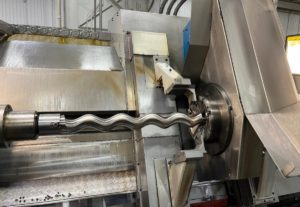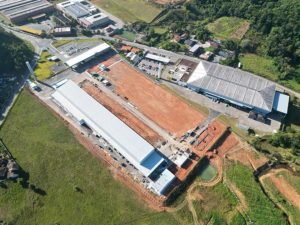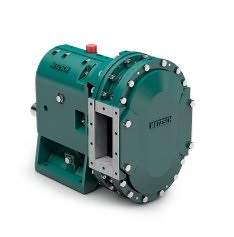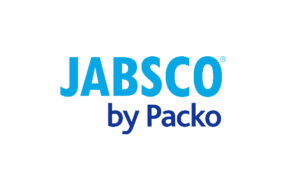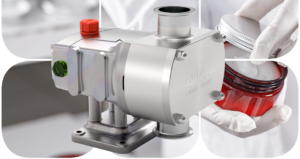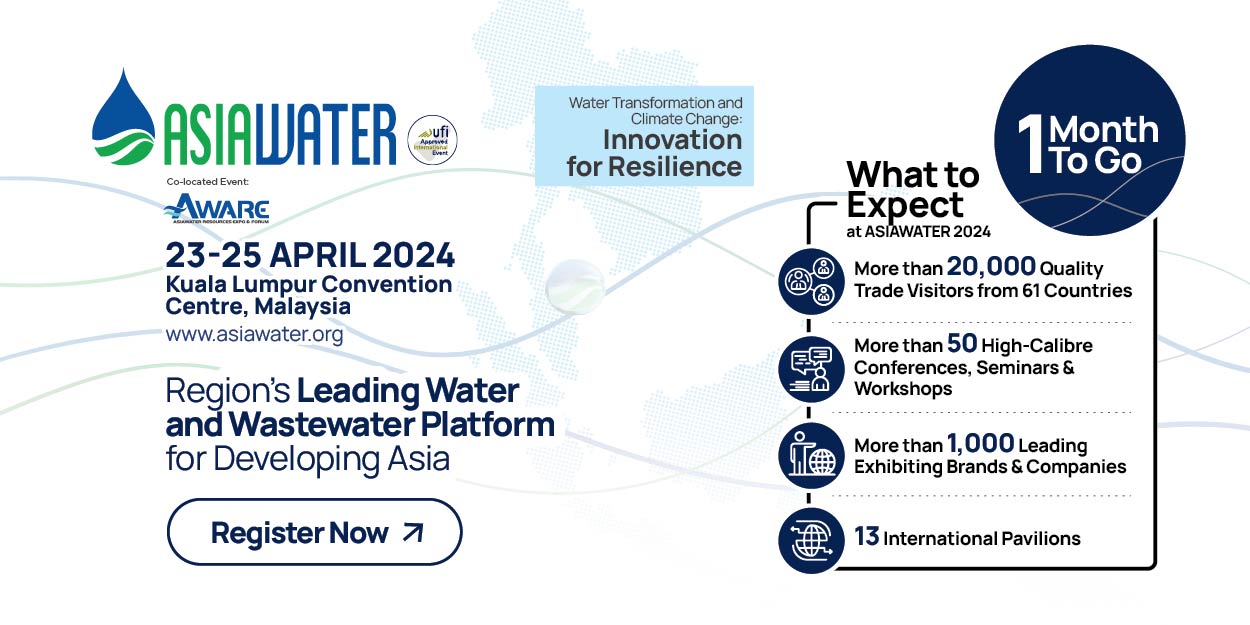Inauguration of the New Netzsch Elastomer Technology and TecLab Halls
Netzsch Pumpen & Systeme GmbH s new halls have been inaugurated at a ceremony on Friday 18 October, in the presence of the Netzsch and Schaefer family partners.
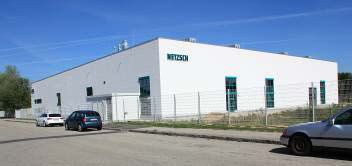
The Netzsch elastomer hall af-ter completion in summer 2013.
The steady growth in orders and the successful merger of the Oil & Gas Downstream and Upstream areas at the Waldkraiburg site meant the production facilities at the works had to be considerably extended. 11 million euros have been invested in the new building, including the new machines. The elastomer technology hall covers 4,800 square metres and the TecLab 1,000. Both halls were built, occupied and commissioned within a timescale of only 12 months, without interrupting production.
"Production in the hall is already in full swing", said Stefan Kern, the Elastomer Production Manager. The move was made continuously during series production, so that there was no unnecessary interruption of production. The completion of the hall along with the move within the planned timescale of just 12 months was actually a logistical tour de force. Mr Kern shows his pride in this when he says: "All the employees really had to pitch in, so that production could be maintained and the move completed. Occupational health and safety was always paramount during the move, which meant the process was completed without any accidents." At this point, Stefan Kern would like to thank all employees and colleagues whose diligence and willingness to work enabled the achievement of the ambitious objective.
Production in the elastomer hall
The technically complex elastomers for the Nemo progressing cavity pump and the Tornado rotary lobe pump are made in the elastomer plant.
In order to modernise production in this area and to extend the vertical range of manufacture, various machines and systems have been newly acquired, including a press for the elastomer parts of the rotary lobe pump, a degreasing plant and various blasting cabinets.
The layout of the hall follows the manufacturing process for the stator. The storage area for the pipes and GRP parts was therefore set up right by the entrance to the hall as well, and from here they can be supplied for each step of the process around the square of the hall. In this respect, it is helpful to have various cranes which cover the work areas and are designed for a materials load of several tonnes. The operating process starts with degreasing, followed by the blasting of the pipes, then onto the application of primers and binding agents through to the actual elastomer processing. This step in the process can be carried out using three different technologies, either by the injection moulding machine, the extruder or the presses. The components must then rest in a temperature-controlled area at 20 degrees Celsius. After that, they are measured so as to be sure that the high quality requirements have also been achieved. The pipes can now be painted in their famous Netzsch green and also have "Netzsch" printed on them. After this, they go to the outgoing warehouse as finished parts and are delivered from there to the assembly hall in plant 1. By the end of the year, 35 staff will be employed here.
The "TecLab" technical centre: the "testing area" for the modern pump
The technical centre is becoming the "think tank" where the appropriate environment has been created for developing new products. The "TecLab" is likewise fully occupied and for the most part already in operation as well. The core of this building comprises the 780 m² "testing area" where the pumps are tested for their performance with various media. As a rule, the pumps are tested over 6 to 8 weeks for their long-term performance. The pumps are fed from a coolable tank with a capacity of 20 m³. However, it is also possible to heat the medium from smaller containers up to just under 100 degrees Celsius.
An application area has also been set up separate from the "testing area", along with a meeting room. "Here, at the pre-contractual stage, customers can see for themselves how their specifically selected pump can convey the medium for their application", said Hisham Kamal, Product Management Manager.
Netzsch - the region s modern employer
The company, which has a global reach, is also showing its close commitment to the site in Upper Bavaria via this new investment. New jobs will also be created in the future in the course of this ongoing development. Part of this planning therefore also involves using spaces that will be vacated as training rooms, so as to be able to deliver education and training for staff and apprentices there. The experiences which Netzsch has gathered over the last 60 years as a reliable and attractive employer will be put into practice here.
The corporate management, Felix Kleinert (industrial engineering graduate) and Jens Niessner (business administration graduate), is doing everything it can to give qualified employees at Netzsch in Waldkraiburg a sense of well-being: "As a successful, medium-sized company, we are aware of the responsibility we have both to our employees and to society. This is why we are continuously investing in our employees education and training, along with our colleagues health and safety at work, and why our commercial actions have a long-term perspective, so as to be here in the region for the region and, as the headquarters, to take on the role of providing a model for plants on other continents."
Netzsch Pumpen & Systeme GmbH enjoys a very good reputation in the region as an employer and training company and has increased its workforce over the past year to almost 600 employees at the Waldkraiburg site, with 56 of them being newly appointed over the past business year. This also includes 42 trainees who are being given industrial and commercial training. The retention rate is high. This means the company is one of the most important employers and training companies in the town. Netzsch is also one of the first companies to offer posts for the newly created sandwich course in mechanical engineering in the Mühldorf district.
The world market leader s global market orientation
Up to 150 pumps a day can currently be manufactured at the headquarters in Waldkraiburg. Added to this is the manufacture of numerous original spare parts and components for the other four plants all over the world. Annual production is around 45,500 pumps. High quality standards and fully-integrated service concepts enable Netzsch to underline its technology and market leadership in progressing cavity pumps and in addition to make its mark with its Tornado rotary lobe pump product range and in dosing technology. The company s motto is always to develop and offer the best pump for each application to its customers in the most diverse sectors. Netzsch is seen as a modern, innovative company with a global reach. New developments in Netzsch pump technology are received with great interest and much appreciation all over the world.

